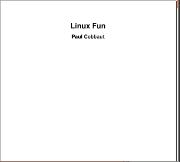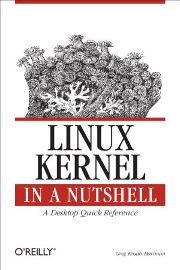Last Updated on August 22, 2023
9. Think Python – How to Think Like a Computer Scientist
By Allen B. Downey (PDF, Postscript, LaTeX, HTML, EPUB; 234 pages)
Think Python is a concise and gentle introduction to software design using the Python programming language. Intended for would-be developers with no programming experience, this book starts with the most basic concepts and gradually adds new material at a pace that is comfortable to the reader.
This book providing a wealth of information on:
- Variables, expressions and statements
- Functions
- Conditionals and recursion
- Fruitful functions
- Interation
- Strings
- Lists
- Dictionaries
- Tuples – ordered list of elements
- Files
- Classes and objects / Classes and functions / Classes and methods
- Inheritance
- Case studies on interface design, word play, data structure selection, and Tkinter
10. Linux Fun: All the Linux basics
By Paul Cobbaut (PDF; 740 pages)
Linux Fun: All the Linux basics is targeted at novice Linux system administrators (and may also help home users). This book is not meant as an introduction to Linux desktop applications like text editors, browsers, mail clients, multimedia or office applications.
This book has chapters on:
- The command line
- Shell expansion
- Pipes and commands
- vi editor
- Scripting
- Local user management
- File security
- Process, disk, boot, system, network, kernel, and backup management
- Introduction to Samba
- DNS, DHCP servers
- Iptables firewall
- Apache and Squid
- IPv6 – directs internet traffic
11. The Linux Command Line – 5th Edition
By Greg Kroah-Hartman (PDF, DocBook; 202 pages)
Linux Kernel in a Nutshell is a comprehensive overview of kernel configuration and building, a critical task for Linux users and administrators.
This book covers the entire range of kernel tasks, starting with downloading the source and making sure that the kernel is in sync with the versions of the tools you need. It is current as of the 2.6.18 kernel release.
The book is divided into the following parts:
- Requirements to build and use the kernel, retrieving the kernel source
- Configuring and building the kernel
- Installing and booting from a kernel
- Updating a kernel
- Customizing a kernel
- Kernel configuration recipes: Disks, Devices, CPU, Networking, Filesystems, Security, Kernel debugging
- Kernel boot and build command line reference
Back to the Beginning: 11 More Enlightening Free Linux Books – Part 1
This article is divided into three parts:
 Read our complete collection of recommended free and open source software. Our curated compilation covers all categories of software. Read our complete collection of recommended free and open source software. Our curated compilation covers all categories of software. Spotted a useful open source Linux program not covered on our site? Please let us know by completing this form. The software collection forms part of our series of informative articles for Linux enthusiasts. There are hundreds of in-depth reviews, open source alternatives to proprietary software from large corporations like Google, Microsoft, Apple, Adobe, IBM, Cisco, Oracle, and Autodesk. There are also fun things to try, hardware, free programming books and tutorials, and much more. |
